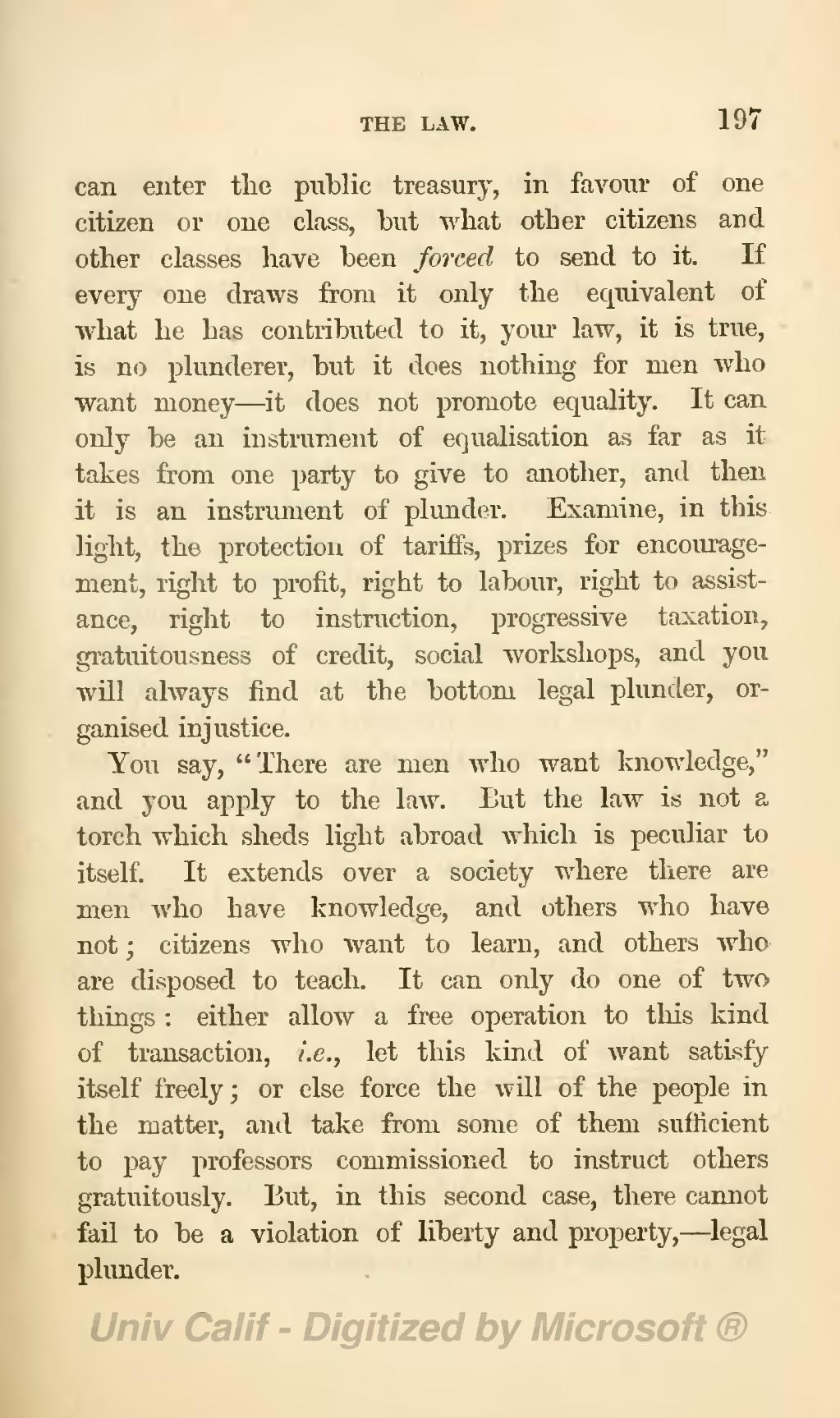can enter the public treasury, in favour of one citizen or one class, but what other citizens and other classes have been forced to send to it. If every one draws from it only the equivalent of what he has contributed to it, your law, it is true, is no plunderer, but it does nothing for men who want money—it does not promote equality. It can only be an instrument of equalisation as far as it takes from one party to give to another, and then it is an instrument of plunder. Examine, in this light, the protection of tariffs, prizes for encouragement, right to profit, right to labour, right to assistance, right to instruction, progressive taxation, gratuitousness of credit, social workshops, and you will always find at the bottom legal plunder, organised injustice.
You say, "There are men who want knowledge," and you apply to the law. But the law is not a torch which sheds light abroad which is peculiar to itself. It extends over a society where there are men who have knowledge, and others who have not; citizens who want to learn, and others who are disposed to teach. It can only do one of two things: either allow a free operation to this kind of transaction, i.e., let this kind of want satisfy itself freely; or else force the will of the people in the matter, and take from some of them sufficient to pay professors commissioned to instruct others gratuitously. But, in this second case, there cannot fail to be a violation of liberty and property,—legal plunder.
